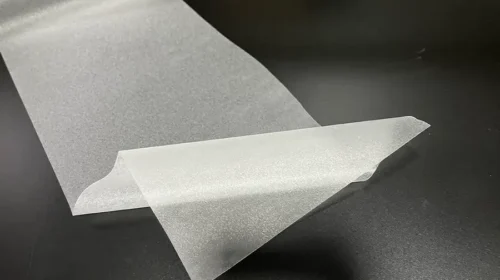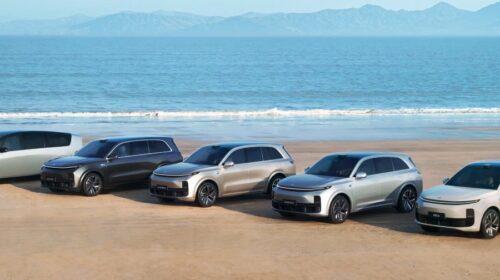Former TV magnate tries his luck at EVs with IPO plans in sight

Skyworth, once known for its televisions, is placing its bets on a foray into the country’s crowded electric vehicle market
Key Takeaways:
- Skyworth Auto is preparing to launch a new EV model in Hong Kong, taking aim at the local taxi market
- Observers expect the company to make a Hong Kong IPO next year, joining a crowded field of listed money-losing Chinese EV makers
By Lau Chi Hang
Chinese electric vehicle (EV) makers are falling like dominoes lately. One of the latest was Neta Auto, whose CEO Zhang Yong stepped down and was replaced by founder Fang Yunzhou amid massive layoffs in October. Not long afterwards, Ji Yue Auto plunged into a similar crisis as angry unpaid workers surrounded CEO Xia Yiping to demand their salaries and other benefits at the company’s Shanghai headquarters.
As those and others travel down the same road toward oblivion, similar to former highflyer WM Motor, another company, Skyworth Auto, has been working furiously just to get its newest EV model onto the road in Hong Kong. Qi Kuiyuan, the general manager of Skyworth’s international marketing center, said the company is planning to roll out its Skyworth K model in Hong Kong, and expects to sell around 100 units in the first year.
While Skyworth already has previous models on the road, the low target for Skyworth K looks negligible compared to the tens of thousands of EVs being sold monthly by most major companies. Instead, word on the street says the Hong Kong launch is mainly a stunt aimed at raising the company’s profile ahead of plans for an IPO in the city next year.
TV tycoon shifts gears
Most people have probably never heard of Skyworth Auto. But the Skyworth name and company founder Huang Hongsheng are both well-known in China for their pioneering status in the country’s color television business. Now, Huang is hoping he can work similar magic with his EV gambit.
Huang established Skyworth in 1988 in the southern boomtown of Shenzhen, and the company went on to list in Hong Kong in 2000 as one of the country’s top-three color TV makers. But just when everything seemed to be going his way, Huang was sentenced to six years in prison in 2006 for embezzlement of funds, abruptly ending his spectacular rise.
Not one to give up so easily, he bided his time and dreamed up his next play before his release in 2009. He settled on the EV market and established Jiangsu Skywell Automobile in 2010, which acquired and restructured Nanjing Golden Dragon Bus a year later to enter the auto business with a focus on commercial EVs. He later shifted gears to passenger vehicles and set up Skywell Auto in 2017. In 2021, he bought his original faded Skyworth brand for a relatively modest 28 million yuan ($3.84 million).
Still, Huang did not have any experience in producing cars, let alone EVs. So, the company remained obscure for a very long time until 2023, when the media finally picked up on his attempted comeback story.
At a launch party, Huang said the configuration of Skyworth’s models could help lower blood pressure and improve immunity, adding that driving his companies’ cars had cured him both of high blood pressure and diabetes. He even claimed that driving Skyworth cars could extend a life expectancy by 30 years. His words created an immediate media storm, with Huang emerging as a sort of snake oil salesman peddling wild claims too good to be true.
Skyworth quickly stepped in and tried to undo the damage by saying that his words had been taken out of context and that he was merely sharing his own tips on how to lead a healthier lifestyle. But no one seemed interested in that explanation, leaving the company’s reputation up in the air.
Big investment
Huang has previously said that his company invested 10 billion yuan on its EV foray and planned to invest another 30 billion yuan to make Skyworth among the top 10 EV makers globally.
But reality rarely works out the way people plan, especially in an EV sector that has become a bloodbath for startups that once harbored similarly lofty ambitions. WM Motor lost 41 billion yuan before its downfall, and even Nio (9866.HK; NIO.US), which is still selling cars, has burned through close to 90 billion yuan since its inception in 2014. Can Huang Hongsheng really steer his company through such a sea of red to find a road to profits?
Business 101 tells you that any business needs economies of scale to succeed, especially ones that require such huge upfront investment. When Tesla (TSLA.US) first became profitable in the third quarter of 2018, its quarterly sales were already at 84,000 units. It was similar for Li Auto (2015.HK; LI.US) which was selling more than 80,000 units per quarter when it posted its first quarterly profit. Some estimate profitability can only come for EV makers when they hit at least 25,000 in average monthly sales, translating to about 300,000 units per year.
In terms of margins, any EV company requires a gross profit margin of at least 15% in order to survive over the longer term, Deng Chenghao, vice president of Changan Automobile and CEO of Deepal Automobile, said earlier this month.
Despite having some sales under its belt, Skyworth is still light years from either of those benchmarks. Its sales in 2022 totaled just 16,417 units, rising to 18,630 units last year before slipping to just 11,336 units in the first 11 months of 2024, according to Cnsuv.com. The company hasn’t commented publicly on its gross profit. But at its current scale, it would be lucky just to avoid a gross loss.
Looking overseas
Then there’s also the potential for expansion overseas – an alternate path that wouldn’t be lost on someone as shrewd as Huang. In pursuit of that, the company has entered into a 10-year strategic partnership with the Saudi KAG Group, with a planned investment of 10 billion yuan in the first five years during the partnership’s first phase. KAG currently operates auto transport and new energy vehicle (NEV) services for the Saudi royal family, among other things.
Skyworth Auto has also partnered with Thailand’s taxi association, together with Sun Capital, Aeolus Auto and Westpac Trust-Bank, to co-develop the Fregata EV brand in Thailand. The company has also signed a tie-up with Indonesia high-tech company Polytron, affiliated with the country’s Djarum Group, to establish a factory to assemble and co-develop NEV products for the Indonesian market.
Despite such efforts, Skyworth Auto’s overseas expansion is still just in its initial phase, with production and sales yet to begin. Whether its efforts will ever truly pan out remains a big unknown – if the company even survives long enough to make an IPO and avoid the fate of others like WM Motor and Neta Auto.
To subscribe to Bamboo Works weekly free newsletter, click here






